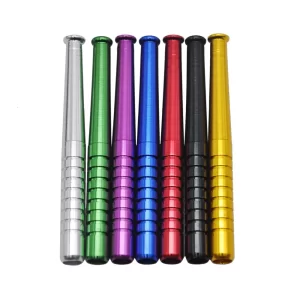The Ohio House of Representatives has passed a bill that would make significant changes to the state’s voter-approved marijuana legalization law by removing several protections for consumers while also adding a series of new restrictions on hemp products that are intended to align the two sectors of the cannabis industry.
After moving through several House committees this week, with substantive amendments, the full chamber approved the legislation from Sen. Stephen Huffman (R) in a 87-8 vote on Wednesday.
While the measure previously passed the Senate in earlier form it will need to return to that chamber for concurrence, or go to a bicameral conference committee, before potentially heading to the governor’s desk.
Certain controversial provisions of the bill as passed by the Senate were scaled back by the House, but advocates are concerned that it would still make major changes to the marijuana law voters approved in 2023.
Rep. Brian Stewart (R), who has shepherded the legislation through the House, argued ahead of the floor vote that the legislation effectively reaches a “carefully crafted compromise” between lawmakers with differing perspectives on cannabis issues.
“This bill has been very difficult to wrangle, but most of our substantive bills usually are. Rather than being some kind of mushy muddle of weak sauce tie-breakers, this bill does what we all claim that we wanted to come to Columbus to do,” he said. “It tackles the issue head-on. It makes tough decisions. It respects and implements the feedback from residents and advocates across the affected industries. This bill wisely balances between Ohioans’ individual liberties, their safety, the financial wellbeing of our local communities and the need to protect the health and safety of Ohio’s children.”
Rep. Jamie Callender (R), who sponsored marijuana legalization legislation ahead of voters’ approval of the reform at the ballot, said the bill is “not perfect” but argued that lawmakers “have to act” to address intoxicating hemp and other pending issues.
“This is the revised code we’re writing,” he said. “I anticipate there will be numerous other bills on these topics in the near- and long-term future, as there should be… I’ll keep working with everyone to make it better.”
While its supporters have described it as a less heavy-handed approach compared to the original Senate bill, the measure would make substantive changes to the existing legalization law—with several provisions that advocates say directly contradict the will of voters and represent overreach on the part of lawmakers.
For example, the proposal would eliminate language in current statute providing anti-discrimination protections for people who lawfully use cannabis. That includes protections meant to prevent adverse actions in the context of child custody rights, the ability to qualify for organ transplants and professional licensing.
It would also recriminalize possessing marijuana from any source that isn’t a state-licensed dispensary in Ohio or from a legal homegrow. As such, people could be charged with a crime for carrying cannabis they bought at a legal retailer in neighboring Michigan.
Additionally, it would ban smoking cannabis at outdoor public locations such as bar patios—and it would allow landlords to prohibit vaping marijuana at rented homes. Violating that latter policy, even if it involves vaping in a person’s own backyard at a rental home, would constitute a misdemeanor offense.
Karen O’Keefe, director of states policies at the Marijuana Policy Project (MPP), said in a letter to House lawmakers on Wednesday that SB 56 as currently drafted “eliminates essential protections from the voter-enacted law and recriminalizes innocuous conduct that voters legalized.”
“Please reject this erosion of freedoms enacted by voters,” she said.
Unlike the Senate-passed version of the bill, the House substitute will send tax revenue from cannabis sales to local governments.
The legislation as amended by the House Judiciary Committee on Tuesday also adds new restrictions on the hemp market. With the exception of beverages, intoxicating hemp products would only be allowed to be sold in licensed hemp dispensaries.
Stores and breweries would be permitted to sell hemp-derived THC drinks, with new advertising restrictions meant to prevent appealing to youth. Products for on-site consumption would be limited to 5 mg of THC, but adults could buy take-home drinks containing up to 10 mg. More potent drinks could also be manufactured in Ohio, but only for sales to people outside the state.
There would also be a new $1.20 tax per gallon on hemp beverages created by the bill.
The measure was further amended earlier on Wednesday by the Finance Committee to clarify that people seeking to expunge prior misdemeanor marijuana possession offenses would not have to prove the specific amount of cannabis that they had. The change would also allow for the expungement of marijuana charges that were dismissed, and not just convictions.
The amendment additionally harmonizes cannabinoid beverage policy with existing laws relating to drinks and clarifies that penalties for selling marijuana, hemp drinks or cannabinoid products to an underage person would be the same regardless of the type of product.
The House vote on Wednesday comes weeks after the governor issued emergency rules prohibiting the sale of intoxicating hemp products for 90 days, with instructions to the legislature to consider permanent regulations. Last week, however, a county judge enjoined the state from enforcing that policy in response to a legal challenge.
“Frankly, the legislature had not taken action,” Gov. Mike DeWine (R) said in an interview published this week. “I’m still hopeful that the legislature will come in and actually take action.”
House Speaker Matt Huffman (R) commented recently on the relative lack of progress in advancing marijuana and hemp legislation since voters approved legalization at the ballot in 2023, noting substantive divides within the Republican caucus.
There are “folks who believe that marijuana should be legalized and regulated,” others “who believe that the hemp products should be on equal standing with everything that happened in the initiated statute and then “folks, like me, who are prohibitionists, who don’t think it should be legalized at all and it should be rare,” he said.
“I would say the prohibitionists have largely lost this discussion.”
—
Marijuana Moment is tracking hundreds of cannabis, psychedelics and drug policy bills in state legislatures and Congress this year. Patreon supporters pledging at least $25/month get access to our interactive maps, charts and hearing calendar so they don’t miss any developments.![]()
Learn more about our marijuana bill tracker and become a supporter on Patreon to get access.
—
Meanwhile, last month, the Ohio Department of Cannabis Control (DCC) filed new proposed rules to build upon the state’s marijuana legalization law, laying out plans to update regulations on labeling and packaging requirements.
The proposal came weeks after Ohio medical and adult-use marijuana sales officially crossed $3 billion, data from the state Department of Commerce (DOC) shows.
The state sold about $703 million in recreational cannabis in the law’s first year of implementation, according to DCC data.
In March, a survey of 38 municipalities by the Ohio State University’s (OSU) Moritz College of Law found that local leaders were “unequivocally opposed” to earlier proposals that would have stripped the planned funding.
Meanwhile in Ohio, adults as of June are able to buy more than double the amount of marijuana than they were under previous limits, with state officials determining that the market can sustainably supply both medical cannabis patients and adult consumers.
The governor in March separately announced his desire to reallocate marijuana tax revenue to support police training, local jails and behavioral health services. He said funding police training was a top priority, even if that wasn’t included in what voters passed in 2023.
Ohio’s Senate president has also pushed back against criticism of the Senate bill, claiming the legislation does not disrespect the will of the electorate and would have little impact on products available in stores.
Photo courtesy of Philip Steffan.



























